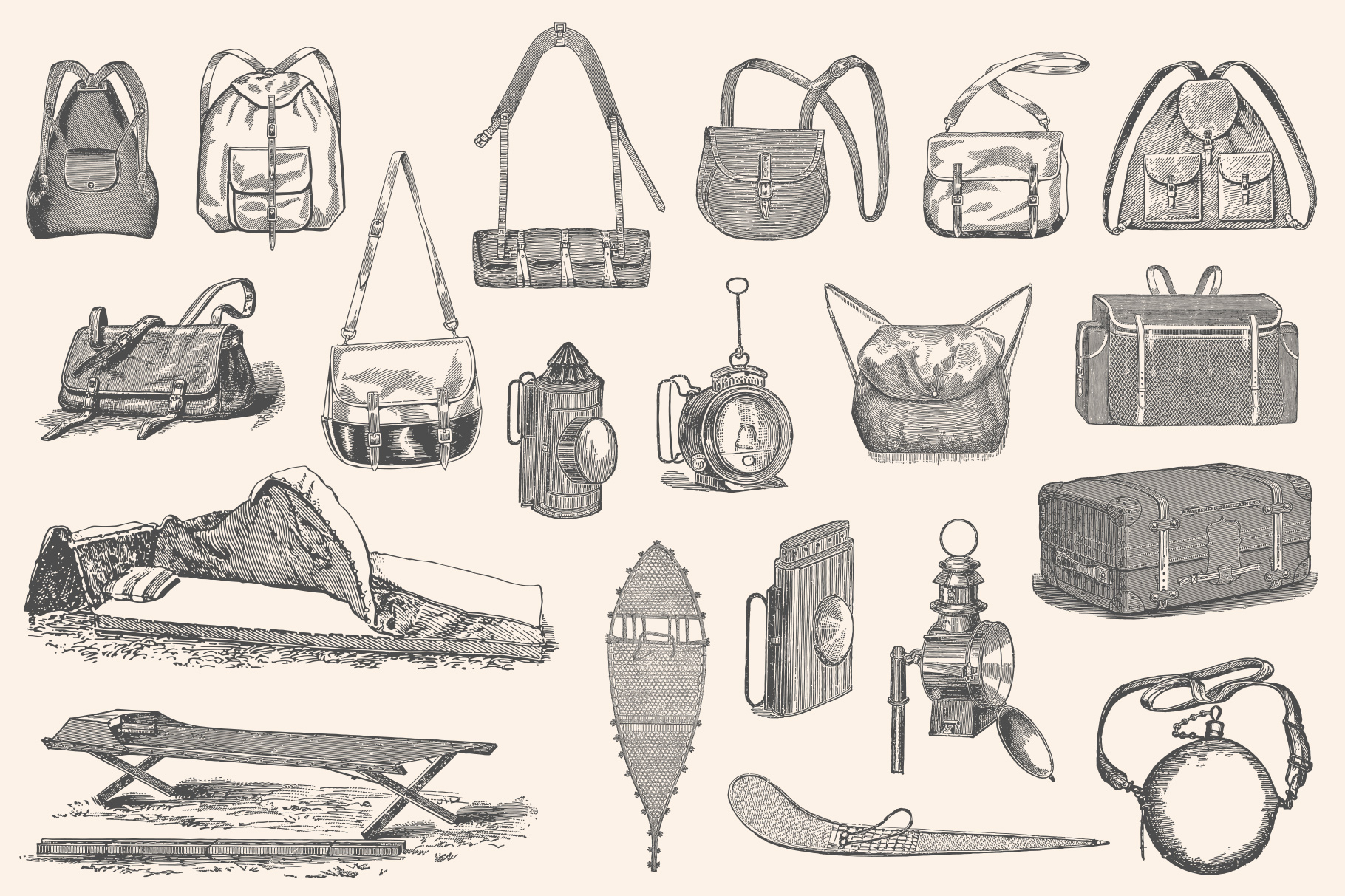
A man and his well-traveled family came by the house the other night, friends of friends needing a place to stay. He was a gray-bearded mountain climber, tall plank of a man 70 years old, one eye squinting, the other permanently closed from some accident in his youth that I didn’t ask about. He came with his daughter, an author and filmmaker in her mid-30s and her husband, a handsome Australian from Alice Springs, his French fluent from his father, who was born in Madagascar.
They were story-tellers, especially the father who’d been an American wilderness traveler before Lake Powell, before highways took out the last big corners of the West. He knew Abbey and Katie Lee, predating my treks out here by half a century. Georgie White plowed him through the Grand Canyon on one of her great silver rafts, and he was in the Sierra when Brower’s name was still on the summit registers. He gave me a sense of the now drowned Glen Canyon, springs and narrow, shaded canyons twisting among each other, sandstone walls blocking the sky.
Judging by his daughter’s easy journeyer’s demeanor, he’d shared his traveling ways with her.
The family was passing by our home on what he called a “D and D” trip. His daughter cut in to explain, “Dad and daughter trip.” He laughed and said the trips used to give Mom a break.
He said that his dad used to do the same with him and his siblings. In one of his stories, he was about 7, and his dad drove them in a Plymouth from L.A., where they lived, on a big loop to Illinois, both Dakotas and Montana, before Washington and back home. This would have been in the early 50s, before northern Arizona was laced with asphalt. He said that once they left Route 66, pavement was gone, leaving a gravel track on the Navajo Reservation from Ganado to Rock Point. After that, roads were hard to find. He remembered hearing directions from there, “Keep Shiprock on your right and eventually you’ll hit pavement.”
In his story, the Plymouth sounded like a boat. It bucked and sailed. Two tracks and red sand, places where hardly a road existed. I know this stretch of high desert, but I know it with asphalt highways.
The Pontiac had seven flats after Rock Point, Arizona, with what the bearded, squinting mountain climber said was the best quality tire you could get for such a car at the time. His hands lifted in the air when he described Shiprock, a ragged monolith towering over the desert, where they got back to a highway after more than a hundred miles of open desert.
From our house, this traveling family was still trying to decide on their next move, driving the Hanksville route through southern Utah, full of white canyons and Mancos shale, or farther north by the stegosaurus-plated sandstones of the San Raphael Swell. They spoke in terms of shape and form, the presence or absence of water, what you want to hear from a family plotting a road trip.
Sitting at our dining room table over tequila and wine, depending on who was drinking and who was telling the story, I told him I was heartened to see the cycle he and his daughter were continuing. He gave a wry smile and told me that you take the good things about your life, what was magical to you as a child, and you offer the same in return.
I grew up in similar terrain. There was always an adventure in the works — rafts, backpacks, shotguns, bicycles, hiking boots, reels and fly rods. My mom quit her job the summer of 1976 so she and I could live in a cabin in the White Mountains along the Arizona-New Mexico border. My dad took me hunting in the desert and fishing along the brown stone creeks of the Mogollon Rim in eastern Arizona.
I think of these cycles, what we learn from our parents — temper, eating habits, income management — as I pack for a trip with my two boys 11 and 15. Our house guests left a couple days ago, and I’m starting check lists, getting out gear. Packs are filled and straps cinched. The trip will involve hiking over a 10,000-foot plateau in Colorado, an airport on the other side, passports to Canada, and a stint in Anchorage before coming home. For the droll lectures I sometimes give to my kids about school or friends, or the angry snap at one child for punching the other in the face, at least I am passing this on. The cycle continues. Get in the car, boys, we’re leaving.

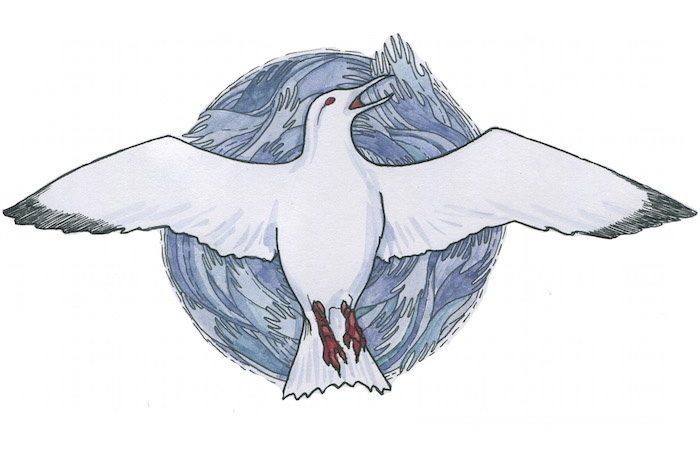
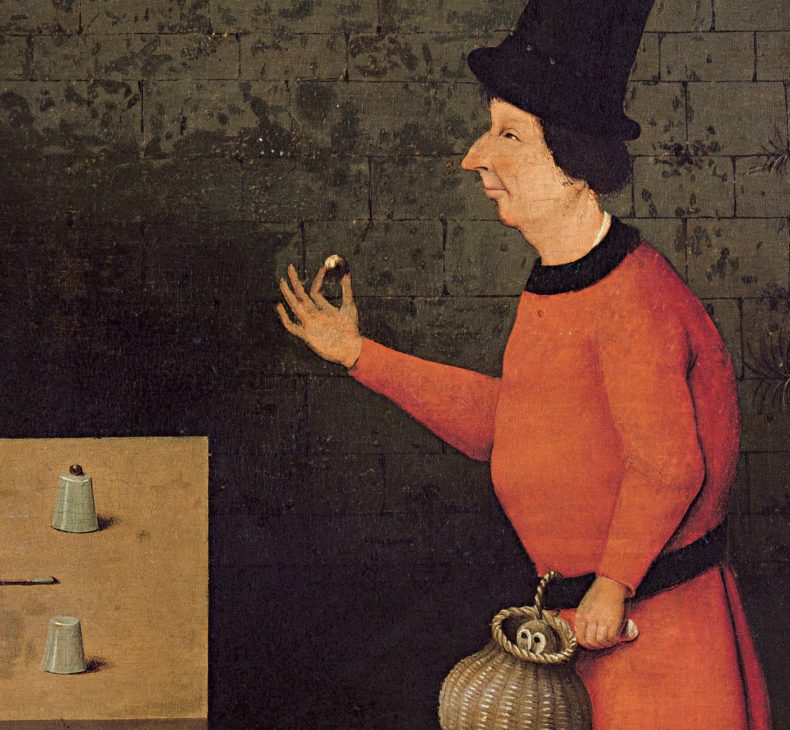


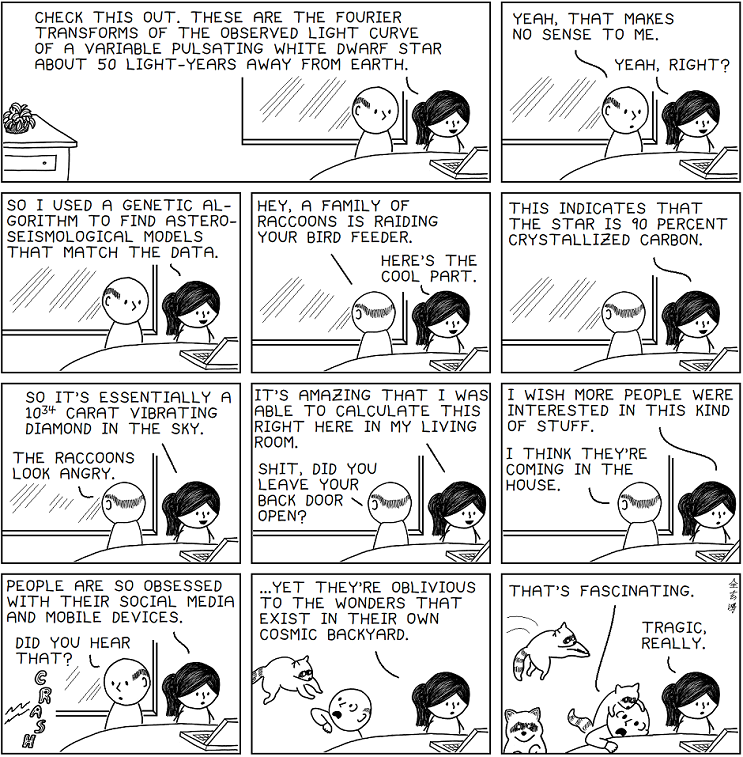
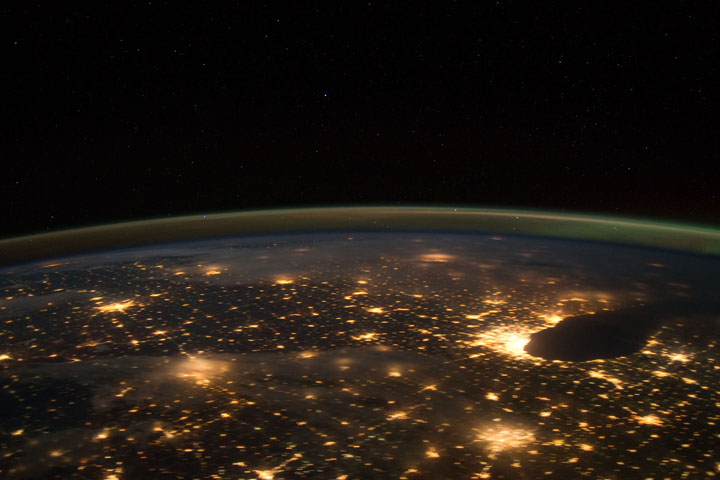
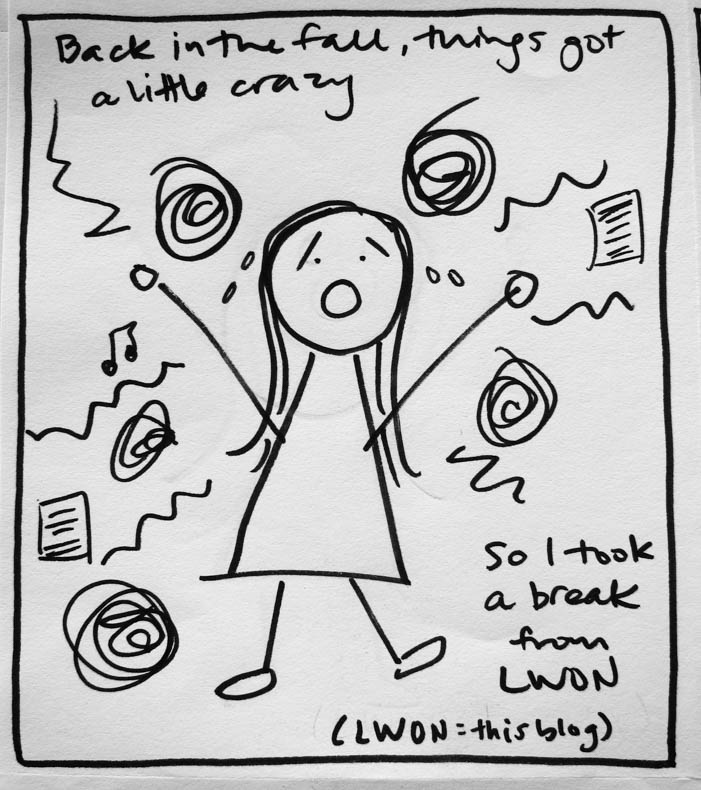

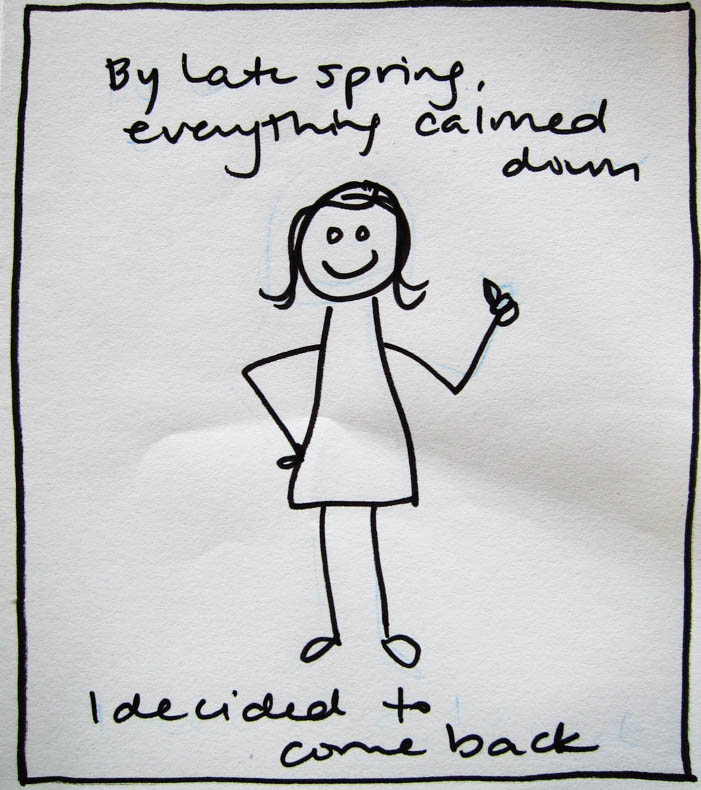

![All of my ideas seemed stupid. [Trying to draw a stupid comic about a stupid pair of glasses, stupidly.]](https://www.lastwordonnothing.com/wp-content/uploads/2018/06/IMG_1467.jpg)
